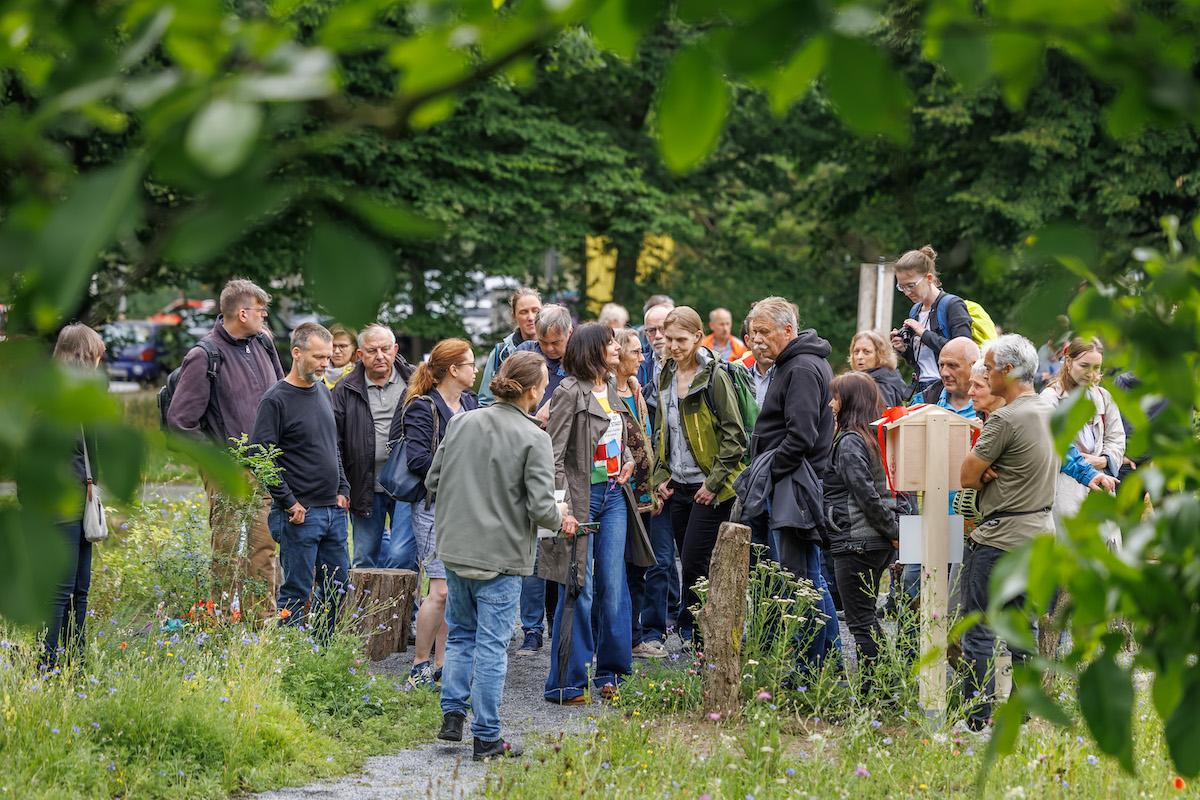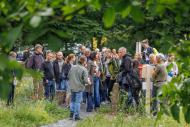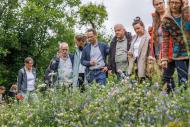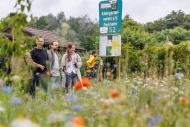Research and education programmes regarding Berlin's urban nature are the centre new project "Vielfalt Verstehen – Natur erforschen und erleben" at the Museum für Naturkunde Berlin. An interdisciplinary team from the project, which is funded by the Berliner Senatsverwaltung, is identifying specific sites of Berlin's biodiversity in the districts of Mitte and Reinickendorf. The aim is to demonstrate biodiversity changes and support citizens in experiencing and promoting this biodiversity for themselves. Numerous environmental education and participation opportunities provide Berlin citizens of all ages with access to "nature on their doorstep". Along with project partners such as multiple educational institutions and nature protection organisations, the foundation Stiftung für Mensch und Umwelt, creates near-natural green spaces in residential areas in cooperation with local residents. One of these areas in Reinickendorf was inaugurated on 2 July by Britta Behrendt, State Secretary for Climate Protection and the Environment, together with Johannes Vogel, Director General of the Museum für Naturkunde Berlin.
Berlin is a green city and urban nature takes an important role in the daily lives of all citizens. Green spaces, parks and nature reserves offer relaxation and shelter, store water and provide a habitat for numerous animals, fungi and plants. Easy access to nature is an important aspect of environmental justice and an important aspect of urban planning. This was also emphasised by Britta Behrendt, Staatssekretärin für Klimaschutz und Umwelt, at the inauguration of a stepping stone biotope designed by the the foundation Stiftung für Mensch und Umwelt in the Berlin district of Reinickendorf.
In cities, stepping stone biotopes create connections between isolated ecosystems, which facilitates the spread of animals, fungi and plants. However, our knowledge of Berlin's urban nature, how it changes over the years and the role that even small green spaces take for biodiversity is still incomplete. The project Vielfalt Verstehen - Natur erforschen und erleben aims to address these gaps. Based on existing data, green spaces and biotopes characterised by a particular diversity of species will be selected and criteria identified in order to improve the protection and promotion of these areas.
The Museum für Naturkunde and other institutions examined the Berlin waters in which endangered fish species can be discovered. The Tegeler Fließ in Reinickendorf is an important habitat for four of these fish species: bitterling, gudgeon, crucian carp and mudminnow. The burbot, which is threatened with extinction in Berlin, has only been found in the districts of Reinickendorf and Spandau in recent years.
Johannes Vogel, Director General of the Museum für Naturkunde, also emphasised on the interdisciplinary nature of the project, which combines biodiversity research with educational programmes: "We want to share our knowledge of urban nature with Berliners and work together to protect biodiversity. Therefore, we head directly to the places where people live and explore and experience nature on their doorstep with them."
Together with schools, associations and neighbourhood organisations, the Vielfalt Verstehen team explores special places of biodiversity in their immediate living environment. Training courses for teachers, environmental educators and mentors, as well as the involvement of the Berlin population in biodiversity research, are intended to ensure the long-term preservation of these natural sites and create new meeting places for dialogue and recreation.
The project "Vielfalt Verstehen – Natur erforschen und erleben" is funded by the Senatsverwaltung für Mobilität, Verkehr, Klimaschutz und Umwelt (SenMVKU). The focus is particularly on the districts of Mitte and Reinickendorf, with the Stiftung für Mensch und Umwelt as a close cooperation partner. A detailed report on "Vielfalt Verstehen – Natur erforschen und erleben" can be found in the journal "für Natur", issue 9 (2024): Wild neighbourhood
Vielfalt Verstehen: Researching and experiencing nature
Register for press mailing list
Please note that only people who register using our registration form receive our press releases.



